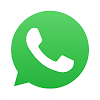The imminent authorization of Pfizer's Covid-19 vaccine in the United States is a momentous occasion for science, the economy and humanity. The milestone is also a major moneymaker for the companies that developed the vaccines.
Ticker
Pfizer and Moderna could score $32 billion in Covid-19 vaccine sales -- in 2021 alone
ad
ad
Medicine of Prophet
Concept of Physis
Physis is controlled by Allah, the Creator who created the human body to perfection with self-regulating and self-healing mechanisms. Ibn Qayyim al-Jawziyyah said: “The innate nature is the power which God,... has entrusted with managing the affairs of the body, its preservation and its health, and guarding it for the whole length of its life.”
Most traditional systems recognize the bodies self-healing ability and the role of the physician is to support this inherent wisdom. This is in keeping with the understanding that ultimately healing comes from Allah, and the role of the physician is to assist physis, the ‘doctor within’ each of us.
Physis operates at every level of human existence, from the moment of fertilization in the mother’s womb, continuing after birth, and persisting until death. Every action, reaction or response - be it physical, emotional, spiritual, bio-chemical - internal or external, is responded to by physis to ensure homeostasis or equilibrium. Physis operates during every second of existence to maintain good health, and especially when sickness develops. It supports the body during convalescence, and is very active following injury. It acts to repair wounds, to overcome infection, and to eliminate the cancers which form constantly in our bodies. By doing so, it safeguards a person’s state of good health against a hostile environment, and actively promotes wellness if he or she is suffering from any ailment. Physis is the sum total of all the body’s natural, instinctive reactions and responses given to the human being to stay well and healthy. When it comes to restoring health, the following quotation, appropriately describes the working of physis: “In fact, no herb, no food or any other substance or procedure can do anything on its own to heal. It can only assist the body in its own selfhealing. If your finger is cut, it is not the stitches or the bandage or the iodine that causes it to heal, it is the skin itself that performs the miracle.”







0 Comments